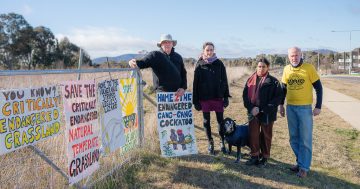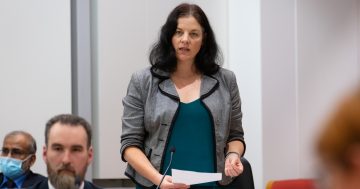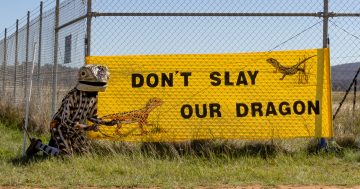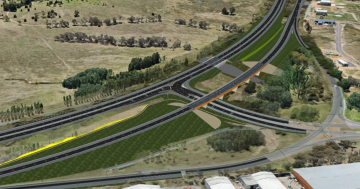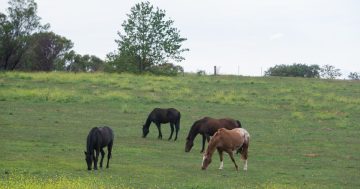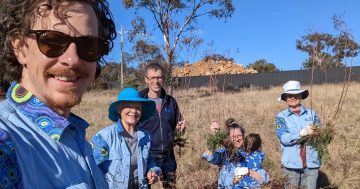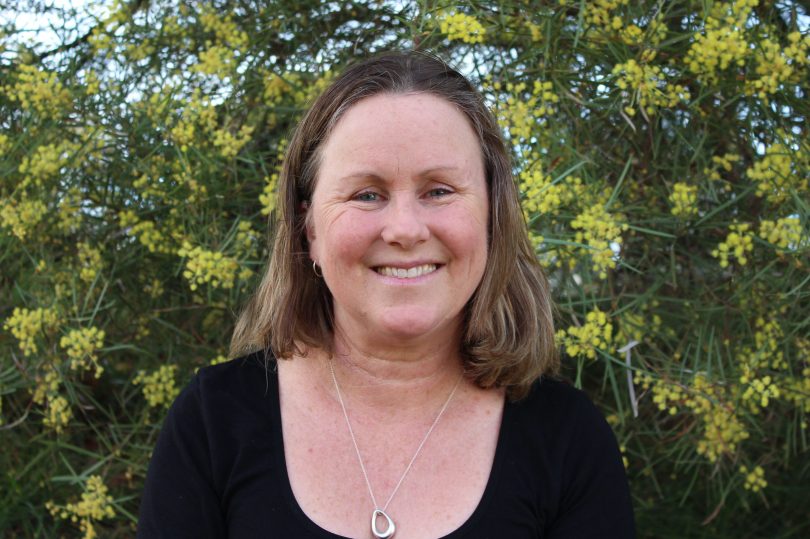
Executive director of the Conservation Council ACT Region, Helen Oakey, says urban development needs to be on the election agenda. Photo: Conservation Council.
Greenfield residential development in the ACT should cease after the completion of current suburban projects to preserve the biodiversity of remaining ACT land, according to the Conservation Council ACT Region’s election wishlist.
The Conservation Council has launched its policy priorities for the 2020 ACT election in wide-ranging document, Our Environment, Our Future.
It calls for no further expansion of Canberra’s urban boundary after existing identified suburbs in Molonglo, Gungahlin and West Belconnen are completed, and for a target of 80 per cent of new residential development to be sited within the existing urban footprint.
This puts the environment body in conflict with Canberra Liberals, which has promised to increase land for standalone housing, possibly west of the Murrumbidgee River in Tuggeranong, and in Kowen Forest in the north, and to reverse the government’s infill priorities.
The ACT Government has identified land west of Stromlo for possible residential development, but its focus is on infill housing, which the Conservation Council supports but believes needs better planning and urban design to provide more shared green spaces and greater housing options.
It wants to see environmentally sustainable medium-density residences around commercial centres and along public transport routes to support diverse housing requirements and to reduce demand for additional greenfield development.
Executive director of the Conservation Council ACT Region, Helen Oakey, said Canberra should be able to densify in a way that is amenable to people and provides a high-quality life, but doesn’t push into areas with high biodiversity.
“It’s been shown we can do it in other parts of the world, and we can do it in Canberra where people have good access to parks and reserves, where we invest in those parks and reserves so they have a high amenity value for different people in the community,” she said.
Ms Oakey said larger medium-density options for families, such as three-bedroom townhouses, would give families who want to be closer to the city – where there is access to services, transport and jobs – more choice.
“What’s really important for Canberra is that we have different options for different families,” she said. “Some prefer to be closer to where they are working, but at the moment it can be very difficult to find a place like that to live in that suits a family.”
The Conservation Council ACT Region is also calling for the timetable to an emission-free ACT to be brought forward to 2030, instead of 2045.
Ms Oakey said climate science is saying this is what the world needs to achieve, and other cities such as Bristol, Glasgow and Copenhagen have set targets in that realm. She acknowledged it is not politically comfortable, but time is running out.
She highlighted two areas that would be quick wins: the phasing out of gas, because it can be easily swapped for electricity; and transport – boosting active travel, improving public transport and taking up electric vehicles.
Ms Oakey said the transition to electric vehicles would be challenging in the ACT because it is a small market, but “when it happens, it will happen very quickly”.
The Conservation Council also wants to see more recycling of waste such as rubber, soft plastics and organics that currently end up in landfill; the phasing out of single-use plastics by 2023; more investment in the ACT’s urban forest; and greater protection of nationally important biodiversity.
“The ACT hosts the largest remnants of two critically endangered ecological communities: Natural Temperate Grasslands and Yellow-Box Blakely’s Red-Gum Woodlands,” said Ms Oakey. “Protecting these in perpetuity and properly managing them to enhance their biodiversity values will be important as urban pressures increase during the next decade.”
The Conservation Council ACT Region will hold election forums in the coming months to give voters the opportunity to ask candidates about their environmental policies.












